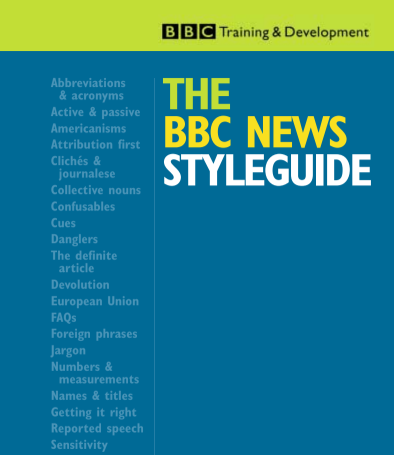How to write a Book Review
Having little knowledge about book reviews will be helpful whether you are a blogger or writer. With the advent of websites like Amazon and Goodreads, book evaluations have taken on a new significance. Previously, they were only a formal examination. You can now attempt to persuade prospective readers to pull out their credit cards by writing a book review.
We'll look at how to write an official book review in this article. You can still utilize some of this post, though, if you want to create shorter reviews for Goodreads or Amazon.
A Book Review: What Is It?
Let's start with the fundamentals to make sure we're both on the same page. It's critical to understand the differences between a book review and a book synopsis. An abstract, often known as a book summary, is a condensed form of a book. A book summary summarizes the key points without going into further detail a book review to try and sway potential readers to buy it as well.
Book synopses are another item that's frequently confused with book reviews and summaries.
Formulate Important Questions For Your Book Review Before You Begin Writing.
Regretfully, a book review cannot be written in a formal manner. Writing a book review, however, is usually a straightforward two-step procedure. First, formulate a book-related argument. And when you compose your evaluation, remember to present that case. Secondly, construct a set of inquiries to focus your thoughts on a particular subject. Although these are questions specifically developed for book reviews, they can be applied to any type of review.
A book review, on the other hand, provides an overview of the book as well as your thoughts, analysis, and criticism. One of the great things about writing book reviews is that they allow you to carry on the discussion that the book began. Therefore, you may participate in the book and the surrounding conversation rather of just summarizing other people's viewpoints. As a book blogger, you may potentially write.
- What is the book's main argument: How does it compare to the real world? What has the author accomplished? Was the book successful?
- What is the book's exact subject or topic: Does the author cover it appropriately? Does the author cover all relevant angles? How does the author support their argument?
- What evidence has the author used to support their point: Do you find the book's evidence convincing? If not, why not? Does the book conflict with anything else you've read? How has the author organized their argument? Does the argument make sense? If not, how has this?
- What comprehension gaps have you seen in this book's content? If you were your reader, would you suggest the book?
By basing your book review on these inquiries, you can ensure that your critique is pertinent to the conversation and stays on topic. So, when you're reading a book that you want to review, make sure these questions are at the top of your list.
How to Write a Book Review: Essential Components
- Overview
- Your synopsis of the book
- Add your thoughts and analysis.
- Finish off your points.
- Make your position clear.
- Keep your audience in mind.
After reviewing your answers to the preceding questions, you must develop a central argument or thesis statement for your review. What is your review's primary argument? What are you incorporating?
You have to communicate as much as you can in the fewest words feasible when writing your book review. A excellent book review should be roughly 1000 words long. You might have to write it even shorter if you're reviewing a book on a website like Goodreads.
But even with the length of your review, here’s a basic structure you can keep.
Overview
Give your readers a summary of the main points of the book in the introduction. But while doing so, you must ensure that your words are clear and precise. Encourage your reader to join the discussion if they have already read the book or to read it again if they haven't.
Make an effort to be objective in your assessment of the book throughout your introduction. Since you will be offering your critical comments later, there should be a fair balance from the outset. What should be in the introduction of your book review?
A strong hook: One of the most crucial sentences you'll write in a book review is the hook. Your main goal should be to grab the reader's interest and hold it throughout sufficient to read the remainder of your review and even the full book.
- Important details: Mention the author, title, and publishing date of the book.
- Author background: What are your knowledge of the writer? When did they write and when did they die? Did the message of the book heavily depend on the author's background?
- The book's theses: What message is the writer attempting to convey? Reviewing a non-fiction book will be much simpler because theses are usually more clear.
Your Book Summary
A succinct synopsis of the book must be included in your review. Not more than a couple of pages. It's important to avoid going into excessive detail because this is only a review and not a thorough examination. Try to keep your synopsis brief and sweet. In this manner, without giving away everything, the prospective reader can get a sense of what to expect from the entire book.
According to the Writing Center, you must take your work's audience into account when trying to summarize the plot. For instance, you should incorporate more of the book's content in your book reviews if you're writing them for comprehensive graduate exams. But if your review is intended for those who have already read the book, you'll have to scope and emphasize the subtle points of the text. If you’re writing a review for a website or a blog, you’ll want to fall somewhere in between.
Add Your Thoughts And Opinions As Well.
Try breaking down your writing into arguments rather than going through the book chapter by chapter and providing analysis. Consider approaching it in the same manner as a high school English assignment.
Give each argument you make regarding the book a paragraph or two of your own writing. Sometimes you have to quote the text to make your arguments clear. This demonstrates that the arguments you make are supported by data from the book. When possible, paraphrase quotes to save time and improve the clarity of your evaluation.
Finish Off Your Points.
Before you give the book your final assessment, summarize your analysis. If you're writing a literary review, review the key ideas in the book. And if you're a book blogger penning a review with an eye toward sales, you may want to include a Call-to-Action.
Like any piece of writing, you shouldn’t look to include new points in your conclusion. Instead, reiterate the points you’ve already made.
Additional factors to take into account when reviewing a book. Here are some more points to consider after you have mastered the main framework.
Make your stance known clearly.
In addition to giving correct information about the book, it's critical in book reviews to express your thoughts and opinions clearly. Simply describing the plot and using a lot of generalizations is insufficient. Instead, express your opinions to everyone. Don't be scared to express your personal thoughts on the situations, people, and places in the book.
You can state your position from the outset, depending on how you want readers to interpret your review. And share your knowledge while you clarify the plot. For example, if there’s a character or device used that you think is notably weak or strong, include your views.
The purpose of your review is to provide your audience with an unbiased viewpoint. Tell them if you think they should read the entire book or not.
Recall Your Viewers
Your writing style should be determined by the people who will be reading your book review. In light of this, consider the magazine you're publishing in (or your motivation for writing) and change as necessary. Write reviews that are buyer-focused and address the appropriate audiences. Fans of fantasy literature would find Game of Thrones appealing, but so would anyone who appreciates a good political thriller.
Give It a Rating
We mentioned this before, but the rating is crucial for a book review that is buyer-focused. Your entire impression of a book is determined by how you rank it, which will have an influence the readers' thoughts about your review.
Star ratings are a common and well-known concept. Five stars are good, as we all know, and one star is usually bad. In addition to stars, you may also use a traditional rating, like five out of 10, or a letter grade based on your school.
Proofread before publishing.
Since the book's author most likely put a lot of work into writing what they thought, the least you can do is do the same. Nothing undermines a written viewpoint's credibility more quickly than misspellings and errors. Make sure you revise and optimize your work with a top-notch writing tool, such as ProWritingAid.
Concluding remarks
There you have it, then. Should you desire to pen a book review, follow these steps to get started? Personally, I find it easier to learn through great examples. So I’d go ahead and recommend that you stay tune with our expert writers.








